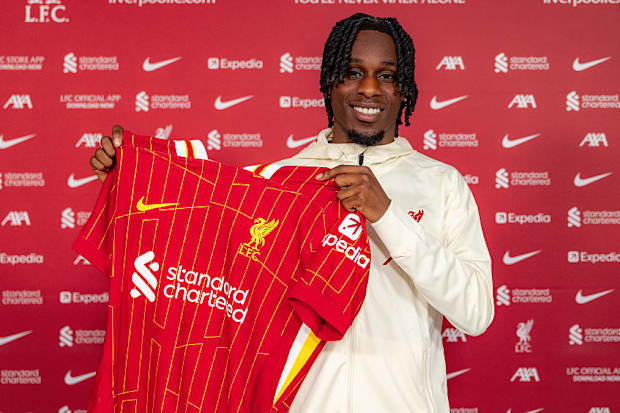Premier League Rule Threatens to Crush Liverpool's Transfer Plans

Liverpool have emerged as the most active club in the current summer transfer market, and their fanbase is naturally thrilled with the wave of new signings.
The additions of Jeremie Frimpong and Milos Kerkez have helped soften the blow of Trent Alexander-Arnold's departure to Real Madrid, while securing Florian Wirtz represents what will surely be the marquee signing across the Premier League.
However, Liverpool may face complications this summer. The Merseyside club must adhere to Premier League squad registration regulations for the upcoming campaign, and their present shortage of homegrown players threatens to create difficulties ahead of the 2025–26 season. This situation appears likely to impact their future transfer dealings.
Here's the reason Liverpool must exercise caution throughout the remaining transfer period.
What Are the Premier League's Homegrown Rules?
Premier League clubs can register a maximum of 25 players for each campaign. From this total, a minimum of eight players must qualify as homegrown.
The Premier League defines this as "a player who, irrespective of nationality or age, has been registered with any club affiliated to The Football Association or the Football Association of Wales for a period, continuous or not, of three entire seasons, or 36 months, before his 21st birthday (or the end of the season during which he turns 21)".
It's important to note that players under 21 years old don't require registration in the 25-man squad and can participate in Premier League matches without restriction.
This regulation means Liverpool can only field 17 non-homegrown players in the 2025–26 campaign, but their summer transfer activity—including both arrivals and departures—has created a challenging situation.
How Many Homegrown Players Do Liverpool Have?

Liverpool's predicament stems from currently possessing 19 non-homegrown players—exceeding their permitted limit by two for next season's Premier League campaign. This follows the acquisitions of Giorgi Mamardashvili, Kerkez and Wirtz, though Frimpong counts as homegrown thanks to his time developing at Manchester City's youth academy.
The club has already seen three homegrown players exit this summer, with Alexander-Arnold, Caoimhín Kelleher and Vítězslav Jaroš all leaving—though the latter departed on loan. When Jarell Quansah's transfer to Bayer Leverkusen receives confirmation, Liverpool will lose another homegrown asset who could have been included in the 2025–26 registration.
Frimpong will serve as Alexander-Arnold's homegrown replacement, while recent third-choice goalkeeper addition Freddie Woodman will fill Jaros's squad position. Nevertheless, Harvey Elliott, Curtis Jones, Joe Gomez, Conor Bradley and Tyler Morton represent the only other first-team players meeting the criteria.
This leaves Liverpool with seven homegrown players currently, though one of their academy graduates over 21 could potentially fill a vacancy—options like Rhys Williams and Owen Beck might serve as imperfect but necessary solutions.
Liverpool's situation could worsen if Elliott and Morton depart, as both players have attracted interest this summer and might seek increased playing opportunities elsewhere. Should both leave, the Reds would possess merely five homegrown players—falling three short of requirements.
Who Can Liverpool Sign to Ease Their Concerns?

Liverpool must create space for their summer acquisitions by offloading non-homegrown squad members. Darwin Núñez, Federico Chiesa and Kostas Tsimikas are among those who could generate valuable revenue while creating necessary room.
Regarding new signings, Liverpool must be selective. Marc Guéhi, who qualifies as homegrown, seems the leading candidate to replace the outgoing Quansah, though the Reds will need to invest heavily in the England defender. The Crystal Palace center-back has only one year remaining on his existing deal.
Liverpool would require striker reinforcement if Núñez leaves, but identifying a homegrown solution for that position will present a considerable challenge.
